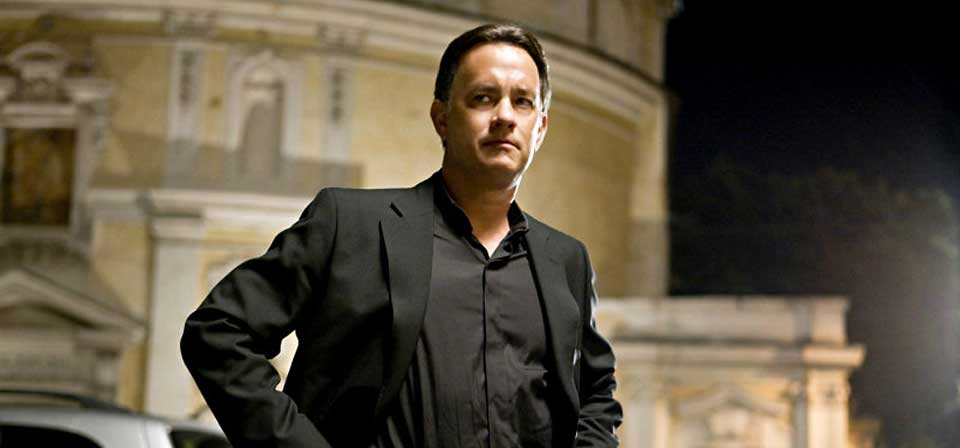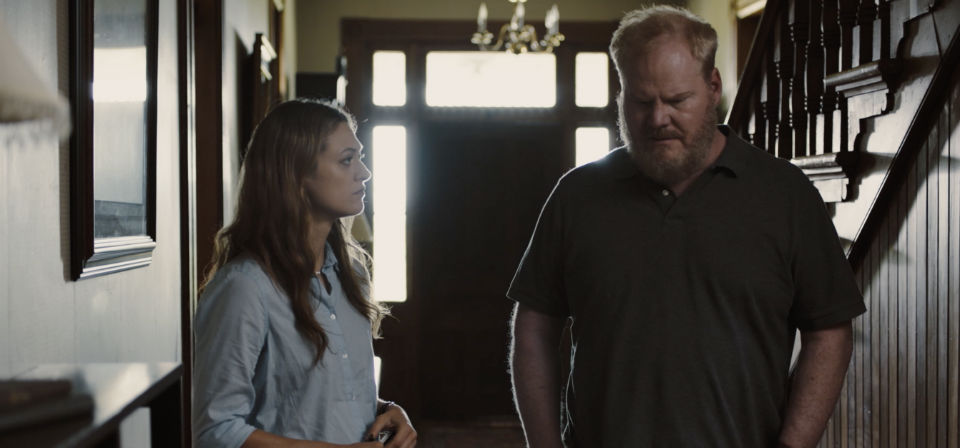Search Results
69 records found
Les Misérables [video]
Les Misérables in 60 seconds: my “Reel Faith” review (plus product notes).

Let’s face it: Hollywood’s got a “religion problem”
One area of representation is disproportionately ignored: how Hollywood deals with religious belief and identity.

Lies, Damned Lies and Dan Brown: Fact-checking Angels & Demons
In a Q&A billed as an “interview” on his own website, Brown writes (in a comment recently highlighted by Carl Olson in This Rock), “My goal is always to make the character’s [sic] and plot be so engaging that readers don’t realize how much they are learning along the way.” Or how much misinformation they’re absorbing.
The Life and Passion of Jesus Christ (1905)
The Life and Passion of Jesus Christ is a remarkable relic from the very dawn of cinema.

Life for Life: Maximilian Kolbe, martyr of Auschwitz (1991)
Two great mysteries hover over the cardinal moment in St. Maximilian Kolbe’s life, a quiet exchange of words with the deputy camp commander at Auschwitz-Birkenau heard by few and lasting probably less than a minute.
Life is Beautiful (1997)
Contriving to hide the boy from camp officials (who soon put the other children to death), Guido tells Giosue that the concentration camp is actually an elaborate role-playing game in which the "players" are competing for points in the hopes of winning a real battle tank. From then on, Guido will take any risk, court any danger, to maintain his son’s illusion that none of it is real.
Life of Pi [video]
Life of Pi in 60 seconds: my “Reel Faith” review.
Life or Something Like It (2002)
Meet Pete (Ed Burns). He’s a cameraman who dresses and behaves in slacker fashion, drinks beer on the job, sleeps around, and says rude things to Lanie. This means he’s an alright guy who Does Know How to Have Fun.

Light from Light (2019)
I’m tempted to call Light from Light the first ghost story I’ve ever seen that I completely believe.

Lightyear is an anti–space opera for an anti-heroic age
It pains me to say this: If Lightyear is Andy’s Star Wars, what an impoverished childhood Andy had.
Lilies of the Field (1963)
Sidney Poitier won a Best Actor Oscar for his portrayal of Homer Smith, a cheerful, itinerant Baptist handyman who one day pulls off the road and approaches a house with no more thought than to get water for his car radiator.

Lilo & Stitch (2002)
Lilo & Stitch is a unique imaginative achievement that succeeds in its own right, without laying down any kind of template for future films to follow. Attempts to repeat its success, to make it into a formula, would be a dismal failure, unless perhaps the formula were to be "Give the creative people room to try something new and let them work without a safety net." What a concept.
Lincoln (2012)
Steven Spielberg’s masterful Lincoln might more accurately have been called The 13th Amendment — and while the choice of the more marketable title is easy to understand, the more crucial decision to limit the scope of the film to the last few months of Lincoln’s life, and to focus less on Lincoln himself than on the political machinations of bringing about his most enduring legal legacy, must have been harder to make.
Lines I Wish I Had Written: Angels & Demons
Arts & Faith veteran “mrmando” skewers Ron Howard’s version of the Dan Brown potboiler with a brilliant angle I hadn’t thought of.
Lines I Wish I Had Written: Eat Pray Love
Okay, so this is like, what, the third shout-out in as many weeks to reader Victor, but his combox quip in my NCRegister.com review of Eat Pray Love deserves the widest possible audience.
Lines I Wish I Had Written: Hop
It’s not often that I encounter a Line I Wish I Had Written right in the headline of a review, but here’s a case in point.
Lines I Wish I Had Written: Robin Hood
Quoting generously from my longish Robin Hood review, Carl Olsen of Ignatius Insight Scoop adds:
Lines I Wish I Had Written: Sex and the City 2
Okay, that’s not literally true, because in order to write a line about Sex and the City 2 I would have had to screen the film, and it’s hard to imagine anything being worth that, especially in the same week as Prince of Persia: The Sands of Time and Agora. I’m not sure my soul wouldn’t implode.
Lines I Wish I Had Written: The Voyage of the Dawn Treader
Major props to Dr. David C. Downing, whose essay on The Voyage of the Dawn Treader (Ignatius Insight) closes with this brilliant line:
Lines I Wish I Had Written: Baz Lurhmann’s The Great Gatsby
Hat tip to Stephanie Zacharek (Village Voice) for the perfect use of that popular critical flourish, the reapplication of a movie quote as auto-criticism of the film, in her review of Baz Luhrmann’s The Great Gatsby.
Recent
- Benoit Blanc goes to church: Mysteries and faith in Wake Up Dead Man
- Are there too many Jesus movies?
- Antidote to the digital revolution: Carlo Acutis: Roadmap to Reality
- “Not I, But God”: Interview with Carlo Acutis: Roadmap to Reality director Tim Moriarty
- Gunn’s Superman is silly and sincere, and that’s good. It could be smarter.
Home Video
Copyright © 2000– Steven D. Greydanus. All rights reserved.